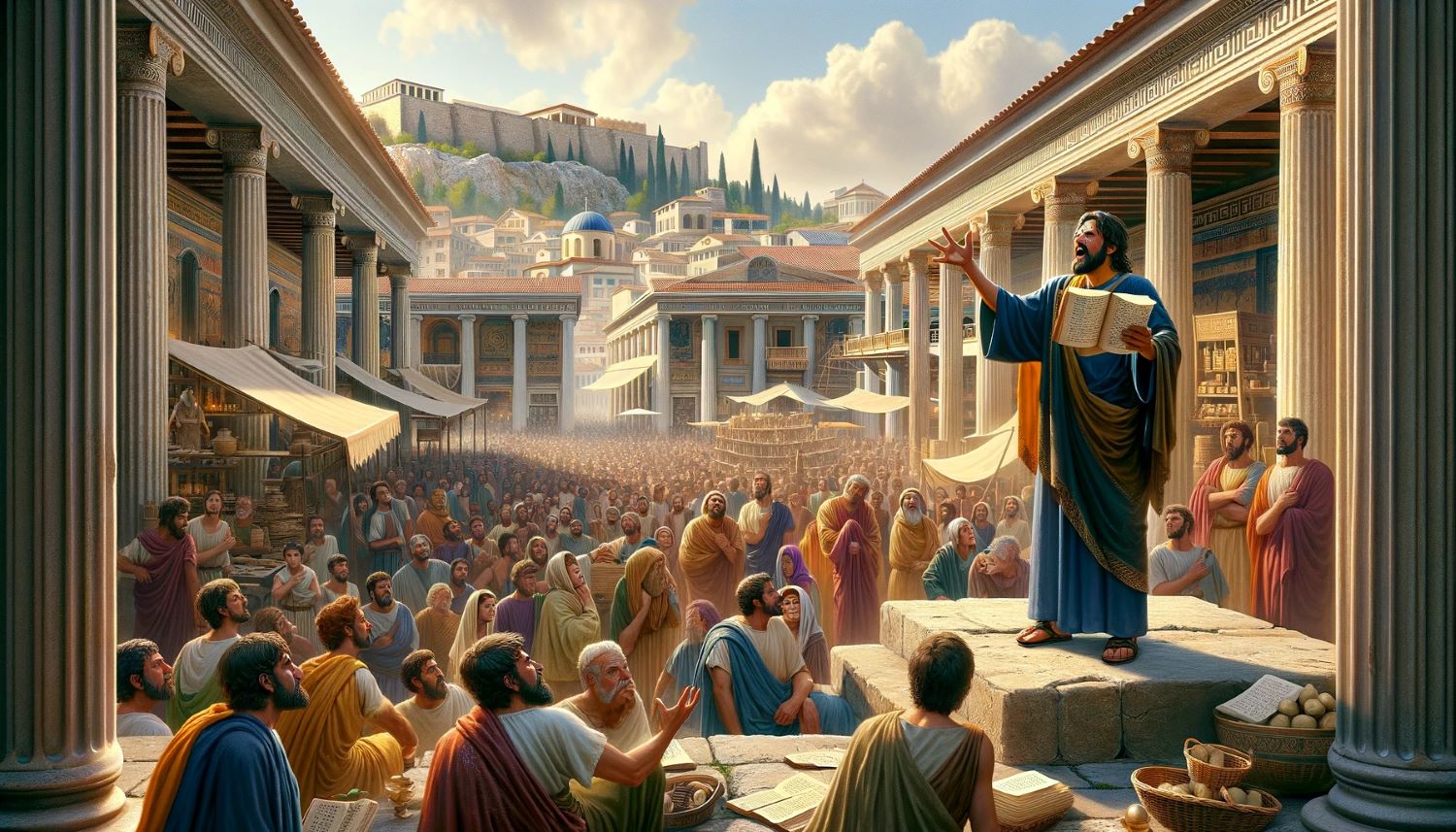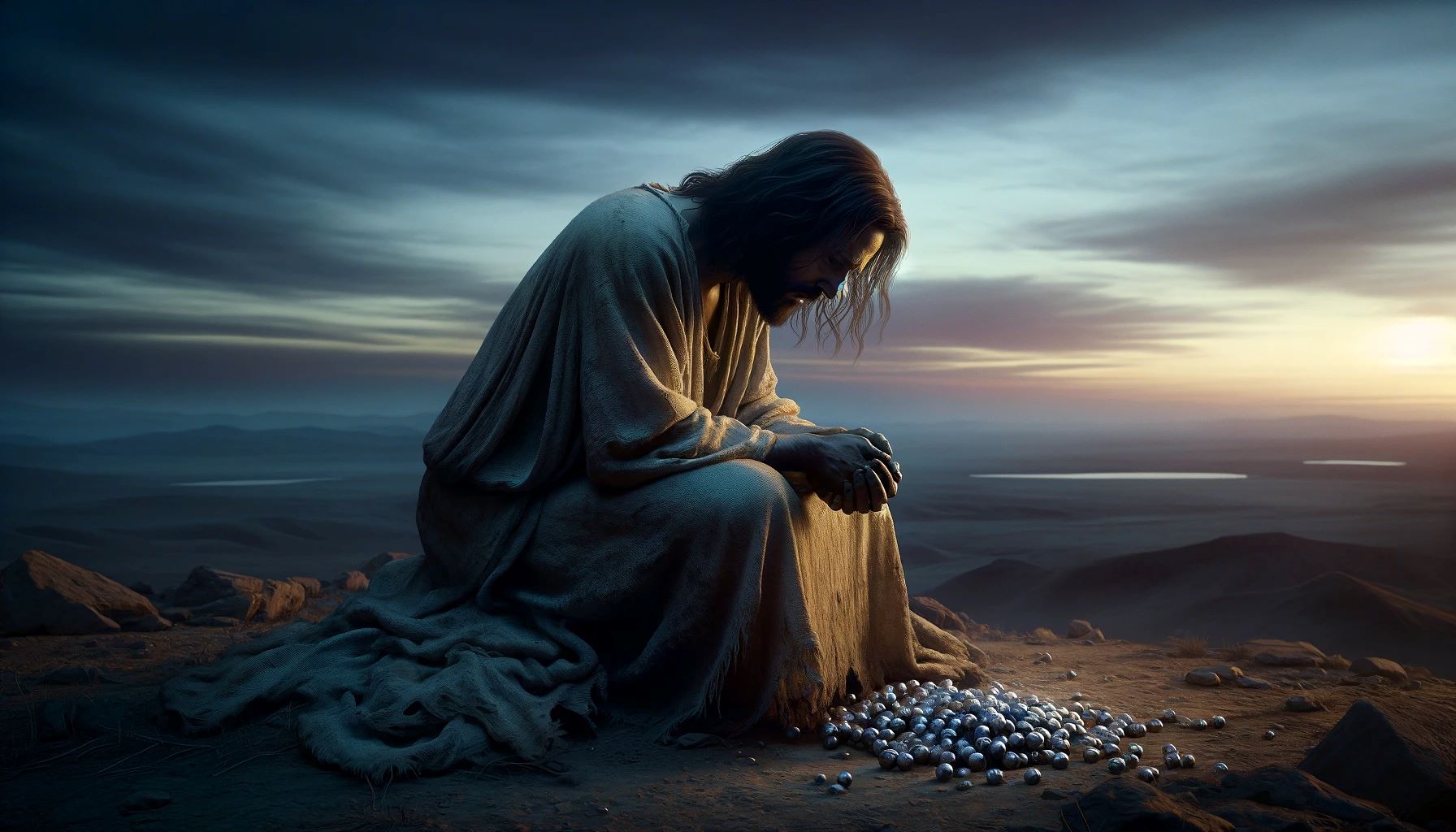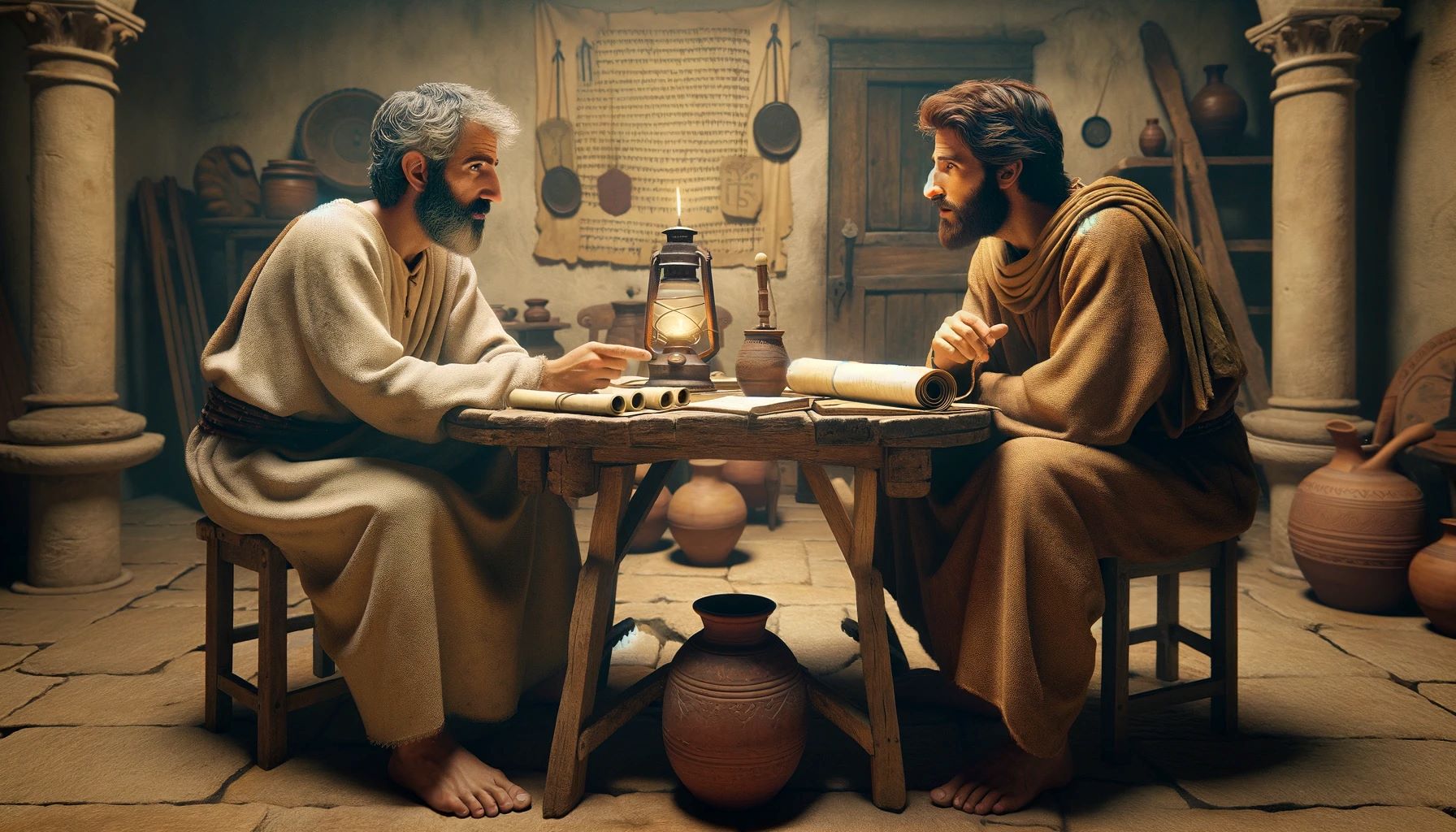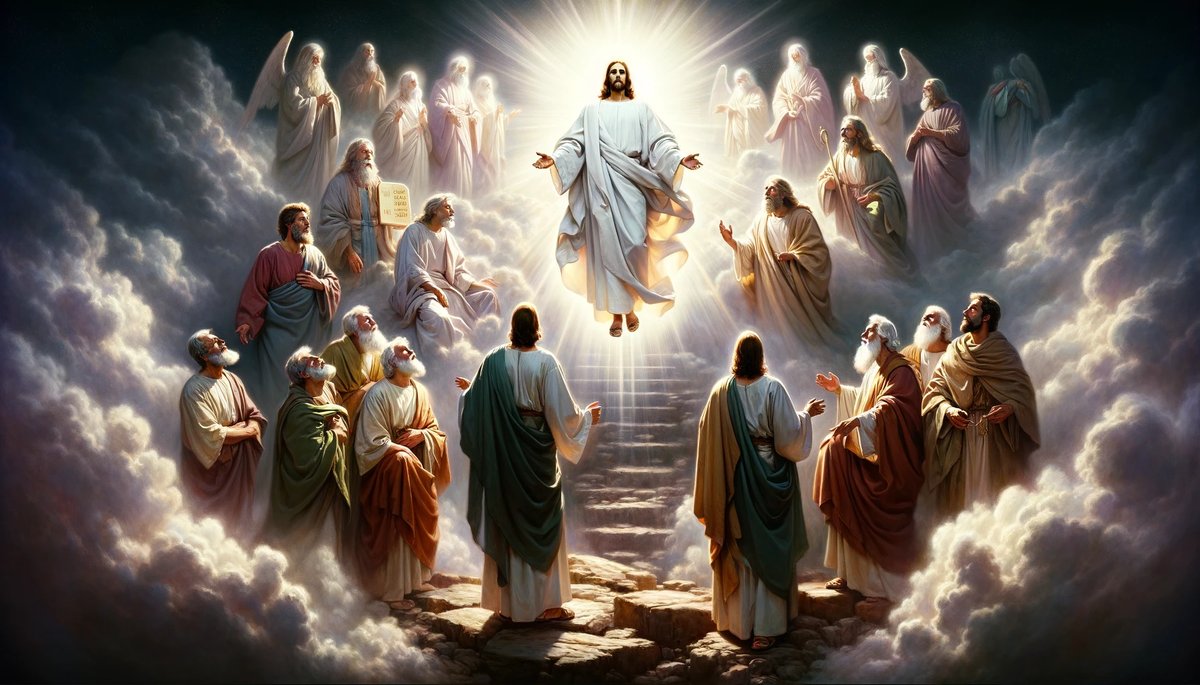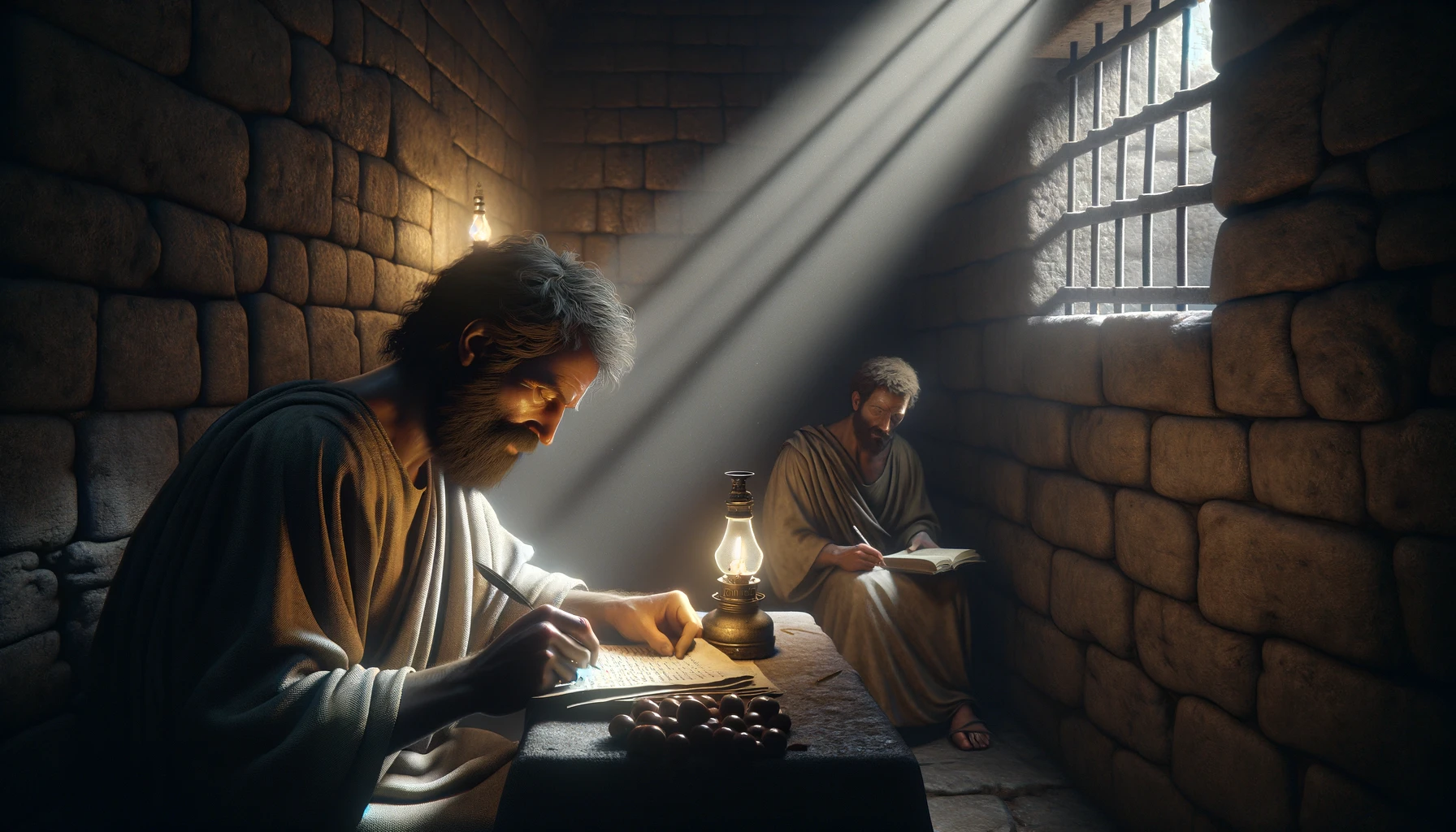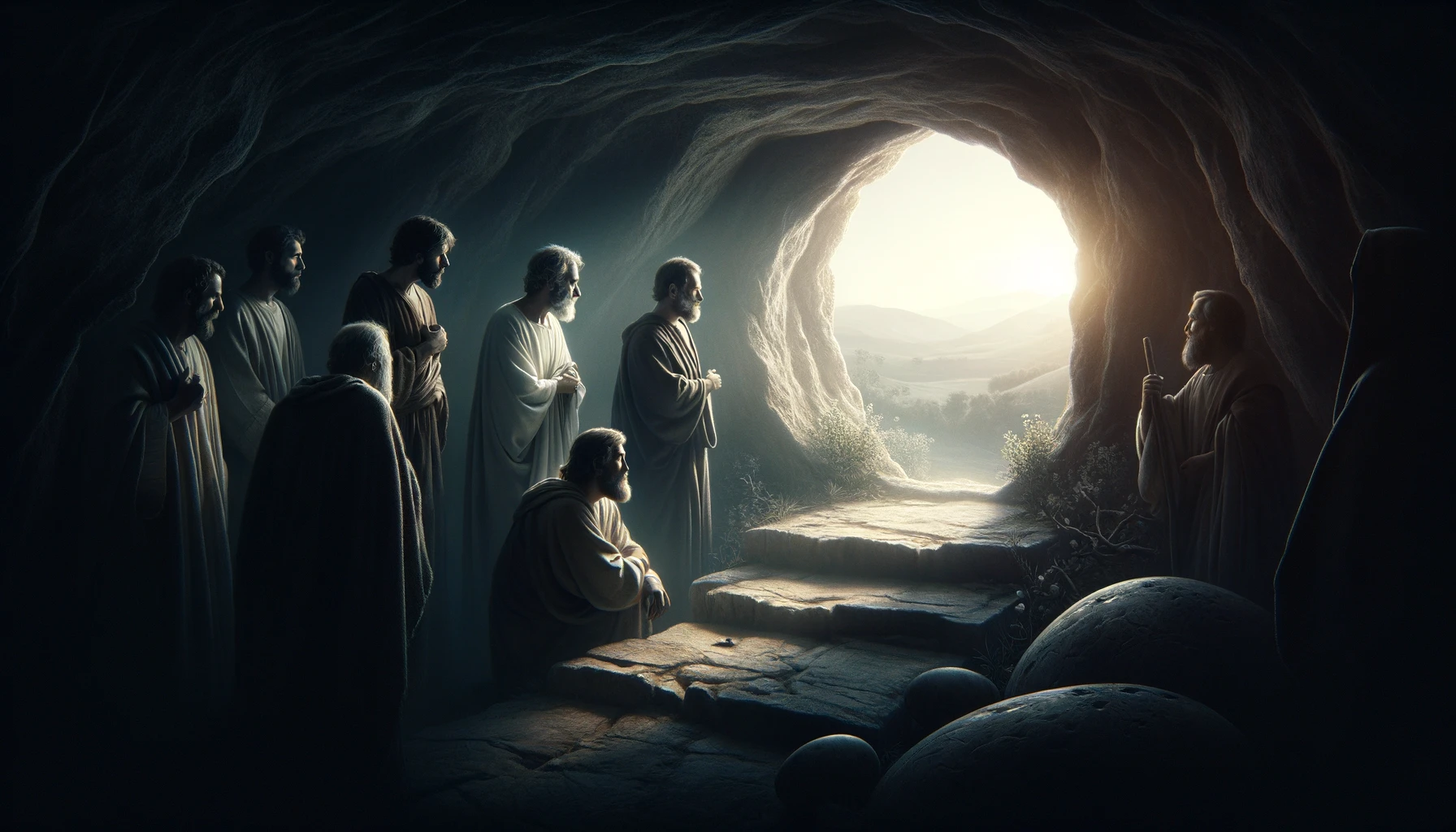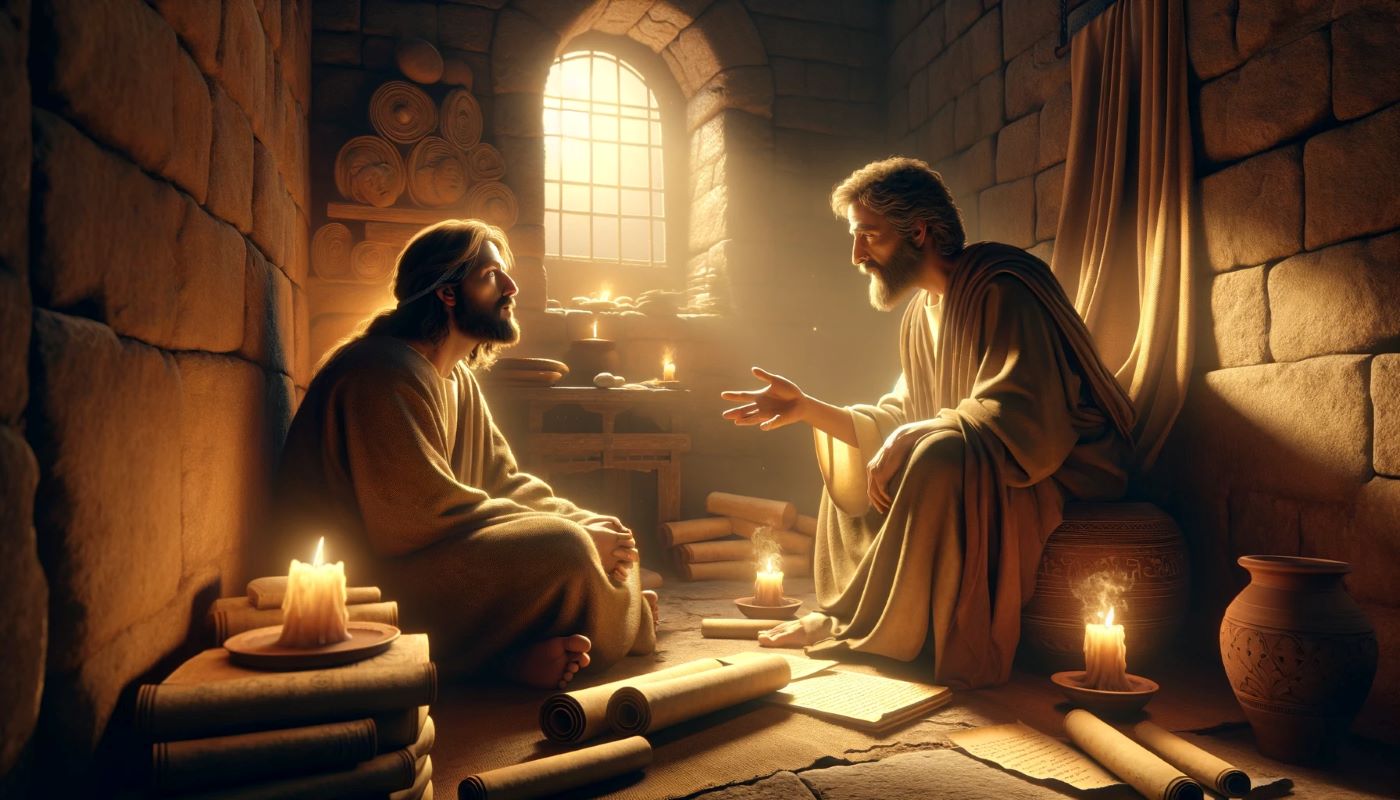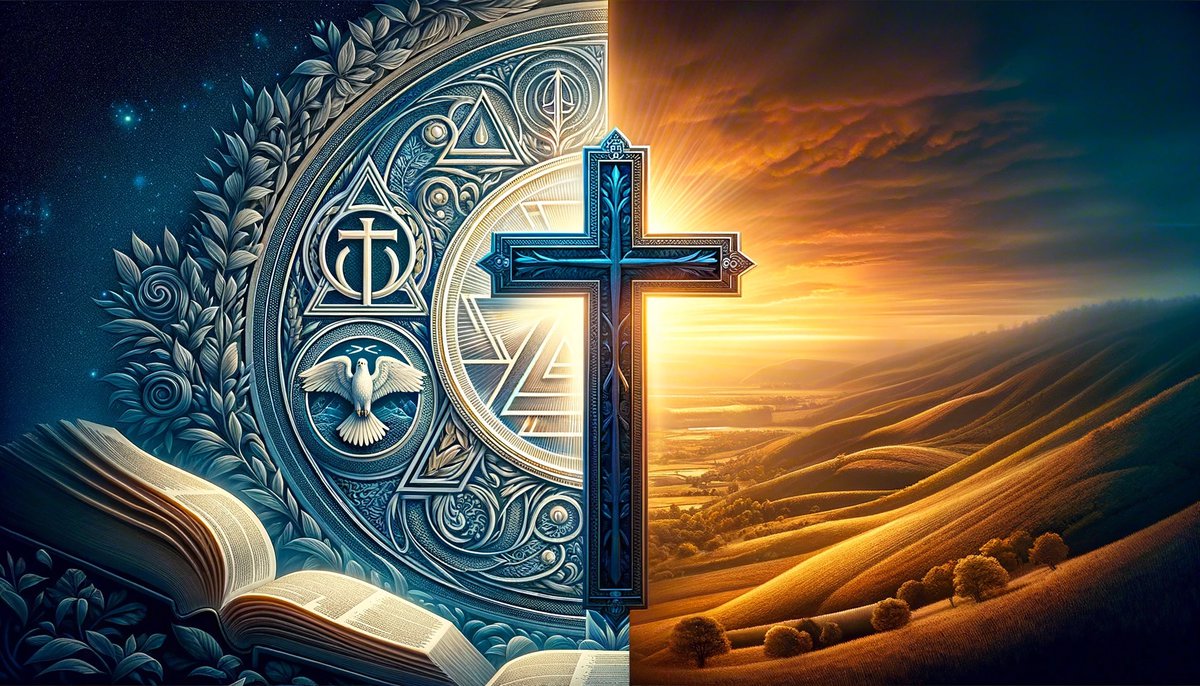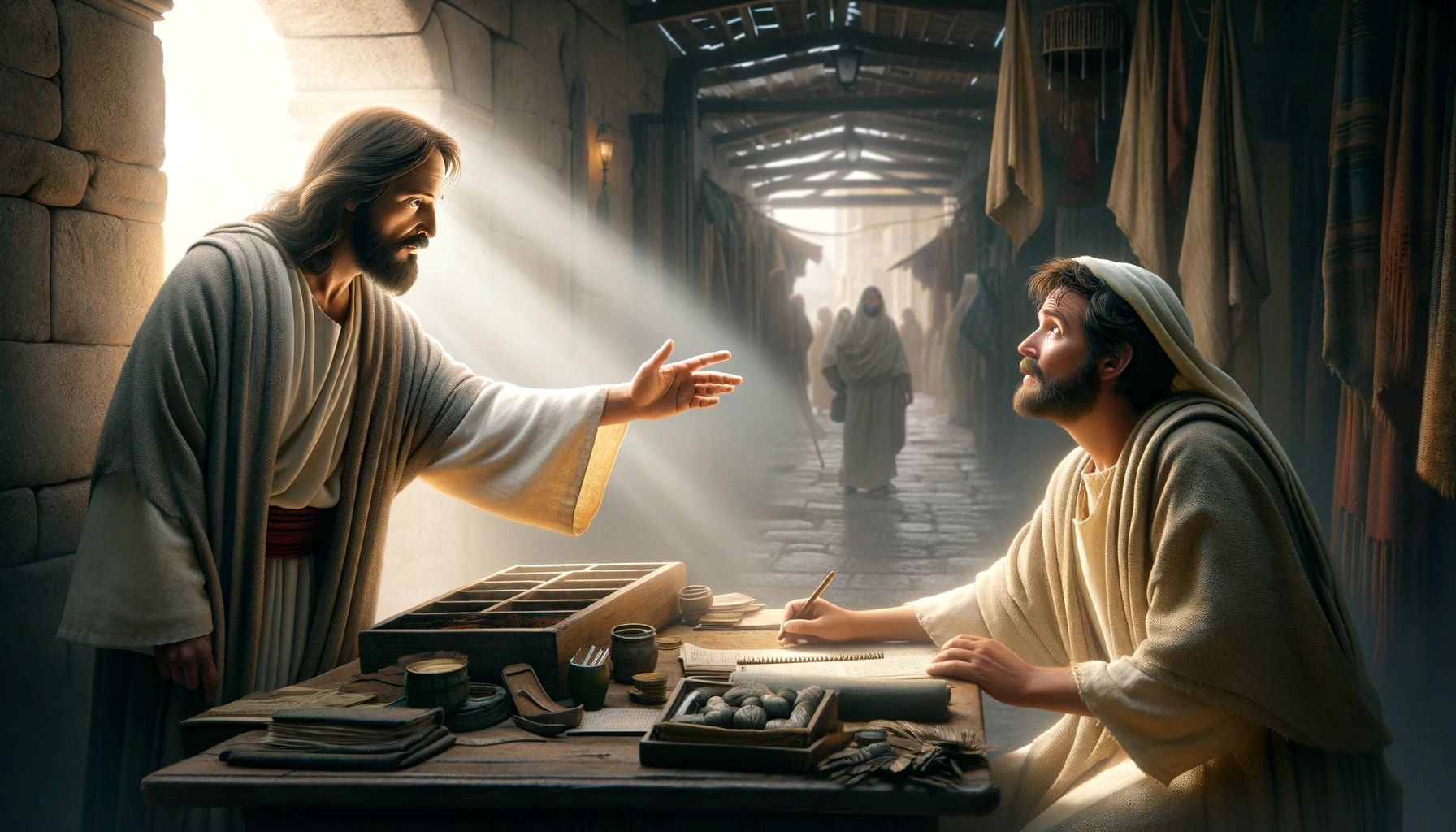Home>Bible Facts>Which Apostles Witnessed The Transfiguration
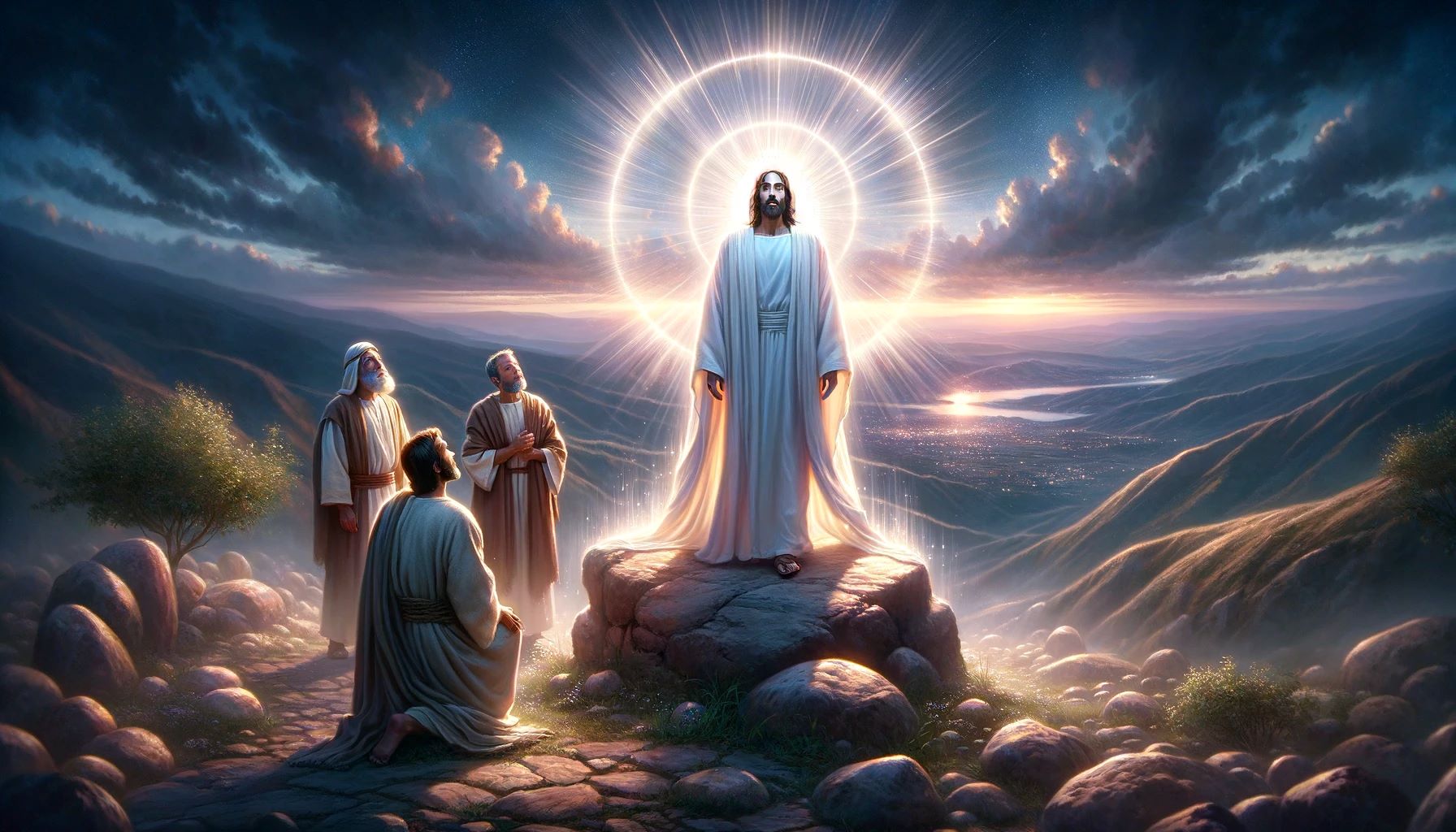

Bible Facts
Which Apostles Witnessed The Transfiguration
Published: February 22, 2024
Ericka Andersen, an editor at Christian.net, expertly merges digital strategy with content creation, focusing on faith and societal issues. Her communication skills enhance the platform's engaging narratives, fostering meaningful dialogue on belief's impact on society.
Discover fascinating Bible facts about the apostles who witnessed the transfiguration. Explore their unique roles in this pivotal event in Christian history. Gain insights into their experiences and significance.
(Many of the links in this article redirect to a specific reviewed product. Your purchase of these products through affiliate links helps to generate commission for Christian.net, at no extra cost. Learn more)
Table of Contents
Introduction
The Transfiguration of Jesus is a pivotal event in the New Testament, offering a profound glimpse into the divine nature of Christ. This extraordinary occurrence, recounted in the synoptic Gospels of Matthew, Mark, and Luke, unveils the radiant glory of Jesus as he converses with Moses and Elijah on a high mountain. The significance of this celestial manifestation extends beyond its awe-inspiring spectacle, as it serves to affirm Jesus' identity as the Son of God and foreshadows his impending crucifixion and resurrection.
This article delves into the select group of apostles who were privileged to witness the Transfiguration firsthand. Their firsthand encounter with this transcendent event not only solidified their faith but also provided a testament to the divine nature of Jesus Christ. By exploring the identities of these apostles and their unique roles in the ministry of Jesus, we gain a deeper understanding of the profound impact of the Transfiguration on their lives and the early Christian community.
The Transfiguration stands as a testament to the divine nature of Jesus Christ, affirming his role as the fulfillment of the Law and the Prophets. As we delve into the lives of the apostles who bore witness to this extraordinary event, we unravel the layers of significance embedded within the Transfiguration, shedding light on its enduring impact on the Christian faith.
Read more: Which Gospels Have The Transfiguration
The Transfiguration of Jesus
The Transfiguration of Jesus stands as a pivotal moment in the New Testament, encapsulating a profound revelation of his divine nature. This extraordinary event took place on a high mountain, where Jesus was transfigured before his disciples, Peter, James, and John. As they looked on, Jesus' countenance transformed, radiating a dazzling brilliance that transcended human comprehension. The significance of this celestial manifestation extended beyond its awe-inspiring spectacle, as it served to affirm Jesus' identity as the Son of God.
During the Transfiguration, Moses and Elijah appeared, engaging in conversation with Jesus. This encounter symbolized the continuity between the Law, represented by Moses, and the Prophets, embodied by Elijah, culminating in the fulfillment found in Jesus Christ. The disciples bore witness to this extraordinary dialogue, further reinforcing the divine nature of Jesus and his pivotal role in fulfilling the scriptural prophecies.
The Transfiguration not only showcased the radiant glory of Jesus but also provided a glimpse of the heavenly realm, affirming his authority and divine mission. This profound revelation served as a source of encouragement and affirmation for Jesus as he prepared to embark on the final phase of his earthly ministry, ultimately leading to his crucifixion and resurrection.
The Transfiguration of Jesus holds deep theological significance, affirming his divine nature and prefiguring the glory that would be revealed in his resurrection. This transformative event served to strengthen the faith of the disciples, equipping them with a profound revelation of Jesus' true identity as the Son of God. The impact of the Transfiguration reverberated throughout the early Christian community, serving as a powerful testament to the fulfillment of God's redemptive plan through Jesus Christ.
The Transfiguration stands as a testament to the divine nature of Jesus Christ, affirming his role as the fulfillment of the Law and the Prophets. As we delve into the lives of the apostles who bore witness to this extraordinary event, we unravel the layers of significance embedded within the Transfiguration, shedding light on its enduring impact on the Christian faith.
The Apostles Who Witnessed the Transfiguration
The Transfiguration, a celestial event of unparalleled significance, was witnessed by a select group of apostles who were granted the extraordinary privilege of beholding the radiant glory of Jesus Christ. Among the chosen disciples were Peter, James, and John, who were not only esteemed members of the inner circle of Jesus' followers but also pivotal figures in the early Christian community.
Peter
Peter, renowned for his unwavering devotion and impulsive nature, emerged as a prominent witness to the Transfiguration. His steadfast commitment to Jesus was exemplified throughout his ministry, and his role in the Transfiguration further solidified his pivotal position among the apostles. As he beheld the transfigured Jesus conversing with Moses and Elijah, Peter was enveloped in the divine radiance that illuminated the profound truth of Jesus' identity as the Son of God. This transformative encounter left an indelible imprint on Peter, reinforcing his unwavering faith and deepening his understanding of Jesus' divine nature.
James
James, the brother of John, was another esteemed witness to the Transfiguration. As a devoted disciple of Jesus, James played a significant role in the early Christian community and was among the privileged few who ascended the mountain to witness the extraordinary transfiguration of Jesus. The radiant glory that enveloped Jesus during this celestial event left an indelible impression on James, affirming the divine nature of Jesus and reinforcing his unwavering commitment to the ministry of the Messiah. The Transfiguration served as a profound affirmation of James' faith, equipping him with a transcendent revelation of Jesus' divine identity.
Read more: Which Of The Apostles Was A Doctor
John
John, often referred to as the beloved disciple, held a unique and intimate bond with Jesus, which extended to his participation in the Transfiguration. As one of the inner circle of disciples, John was granted the extraordinary privilege of witnessing the radiant glory of Jesus on the mountaintop. This transformative encounter left an indelible mark on John, deepening his understanding of Jesus' divine nature and reinforcing his unwavering devotion to the Son of God. The Transfiguration served as a pivotal moment in John's spiritual journey, equipping him with a profound revelation of Jesus' transcendent glory and solidifying his role as a key witness to the divine nature of Christ.
The apostles who witnessed the Transfiguration were entrusted with a profound revelation of Jesus' divine nature, affirming his identity as the Son of God and foreshadowing the redemptive significance of his impending crucifixion and resurrection. Their firsthand encounter with this transcendent event not only solidified their faith but also provided a testament to the divine nature of Jesus Christ.
Peter
Peter, a central figure among the apostles, played a pivotal role in the ministry of Jesus and emerged as a prominent witness to the Transfiguration. His unwavering devotion and impulsive nature characterized his interactions with Jesus, reflecting both his fervent faith and his human fallibility. Throughout his ministry, Peter's steadfast commitment to Jesus was evident, and his role in the Transfiguration further solidified his pivotal position among the apostles.
As Peter ascended the mountain with Jesus and his fellow disciples, he encountered a transformative spectacle that transcended the bounds of earthly comprehension. The radiant glory that enveloped Jesus, as he conversed with Moses and Elijah, illuminated the profound truth of his divine identity. In that transcendent moment, Peter was enveloped in the divine radiance, leaving an indelible imprint on his heart and mind. The Transfiguration served as a profound affirmation of Peter's faith, deepening his understanding of Jesus' divine nature and reinforcing his unwavering commitment to the ministry of the Messiah.
Peter's impulsive nature, which often led to spontaneous declarations and actions, found expression in his response to the Transfiguration. Overwhelmed by the divine splendor and the significance of the moment, Peter exclaimed, "Lord, it is good for us to be here. If you wish, I will put up three shelters—one for you, one for Moses, and one for Elijah" (Matthew 17:4). This impulsive offer, borne out of reverence and awe, underscored Peter's desire to honor and commemorate the sacred encounter on the mountaintop.
The transformative encounter at the Transfiguration left an indelible mark on Peter, reinforcing his unwavering faith and deepening his understanding of Jesus' divine nature. This profound revelation equipped Peter with a transcendent understanding of Jesus' identity as the Son of God, empowering him to fulfill his role as a key witness to the divine nature of Christ. As Peter descended from the mountain, the radiance of the Transfiguration continued to illuminate his path, serving as a source of strength and affirmation as he navigated the challenges and triumphs that lay ahead in his journey of faith.
The apostles who witnessed the Transfiguration were entrusted with a profound revelation of Jesus' divine nature, affirming his identity as the Son of God and foreshadowing the redemptive significance of his impending crucifixion and resurrection. For Peter, the Transfiguration served as a transformative encounter that deepened his faith, reinforced his commitment to Jesus, and equipped him with a transcendent revelation of the divine nature of Christ.
James
James, the brother of John, held a significant position among the apostles and was esteemed for his unwavering commitment to the ministry of Jesus. As a devoted disciple, James played a pivotal role in the early Christian community and was among the privileged few who ascended the mountain to witness the extraordinary transfiguration of Jesus. The radiant glory that enveloped Jesus during this celestial event left an indelible impression on James, affirming the divine nature of Jesus and reinforcing his unwavering commitment to the ministry of the Messiah.
The Transfiguration served as a profound affirmation of James' faith, equipping him with a transcendent revelation of Jesus' divine identity. As he beheld the transfigured Jesus conversing with Moses and Elijah, James was enveloped in the divine radiance that illuminated the profound truth of Jesus' identity as the Son of God. This transformative encounter left an indelible imprint on James, reinforcing his unwavering faith and deepening his understanding of Jesus' divine nature.
James' steadfast dedication to Jesus was exemplified throughout his ministry, and his role in the Transfiguration further solidified his pivotal position among the apostles. The celestial manifestation on the mountaintop served as a source of profound affirmation, strengthening James' resolve and fortifying his faith in the divinity of Jesus Christ. The Transfiguration provided James with a transcendent revelation, igniting a fervent zeal to proclaim the truth of Jesus' divine nature and the fulfillment of God's redemptive plan through the Messiah.
As James descended from the mountain, the radiance of the Transfiguration continued to illuminate his path, serving as a source of strength and affirmation as he embraced his role as a key witness to the divine nature of Christ. The transformative encounter at the Transfiguration left an indelible mark on James, equipping him with a profound revelation of Jesus' transcendent glory and reinforcing his unwavering devotion to the Son of God.
The apostles who witnessed the Transfiguration were entrusted with a profound revelation of Jesus' divine nature, affirming his identity as the Son of God and foreshadowing the redemptive significance of his impending crucifixion and resurrection. For James, the Transfiguration served as a transformative encounter that deepened his faith, reinforced his commitment to Jesus, and equipped him with a transcendent revelation of the divine nature of Christ.
John
John, often referred to as the beloved disciple, held a unique and intimate bond with Jesus, which extended to his participation in the Transfiguration. As one of the inner circle of disciples, John was granted the extraordinary privilege of witnessing the radiant glory of Jesus on the mountaintop. This transformative encounter left an indelible mark on John, deepening his understanding of Jesus' divine nature and reinforcing his unwavering devotion to the Son of God.
The Transfiguration served as a pivotal moment in John's spiritual journey, equipping him with a profound revelation of Jesus' transcendent glory. As he beheld the transfigured Jesus conversing with Moses and Elijah, John was enveloped in the divine radiance that illuminated the profound truth of Jesus' identity as the Son of God. This celestial manifestation affirmed the fulfillment of the Law and the Prophets in Jesus Christ, solidifying John's conviction in the redemptive mission of the Messiah.
John's intimate connection with Jesus permeated every aspect of his ministry and his writings, particularly in the Gospel of John and the letters attributed to him. The profound impact of the Transfiguration resonated throughout his teachings, serving as a testament to the divine nature of Jesus Christ. The radiant glory unveiled on the mountaintop became a foundational element in John's portrayal of Jesus as the Word made flesh, the embodiment of divine truth and grace.
The transformative encounter at the Transfiguration left an indelible mark on John, deepening his understanding of Jesus' divine nature and reinforcing his unwavering devotion to the Son of God. As John descended from the mountain, the radiance of the Transfiguration continued to illuminate his path, serving as a source of strength and affirmation as he embraced his role as a key witness to the divine nature of Christ.
The apostles who witnessed the Transfiguration were entrusted with a profound revelation of Jesus' divine nature, affirming his identity as the Son of God and foreshadowing the redemptive significance of his impending crucifixion and resurrection. For John, the Transfiguration served as a transformative encounter that deepened his faith, reinforced his commitment to Jesus, and equipped him with a transcendent revelation of the divine nature of Christ.
Read more: Which Apostles Wrote The Bible
Conclusion
The Transfiguration stands as a testament to the divine nature of Jesus Christ, affirming his role as the fulfillment of the Law and the Prophets. The select group of apostles, Peter, James, and John, who bore witness to this extraordinary event, were entrusted with a profound revelation of Jesus' transcendent glory. Their firsthand encounter with the celestial manifestation not only solidified their faith but also provided a testament to the divine nature of Jesus Christ.
For Peter, the Transfiguration served as a transformative encounter that deepened his faith, reinforced his commitment to Jesus, and equipped him with a transcendent revelation of the divine nature of Christ. His impulsive declaration on the mountaintop underscored his reverence and awe, reflecting the profound impact of the Transfiguration on his spiritual journey.
James, characterized by his unwavering dedication to the ministry of Jesus, was profoundly impacted by the radiant glory unveiled during the Transfiguration. This celestial manifestation served as a source of profound affirmation, strengthening James' resolve and fortifying his faith in the divinity of Jesus Christ.
John, the beloved disciple, was granted the extraordinary privilege of witnessing the transcendent glory of Jesus on the mountaintop. This transformative encounter left an indelible mark on John, deepening his understanding of Jesus' divine nature and reinforcing his unwavering devotion to the Son of God.
The apostles who witnessed the Transfiguration were entrusted with a profound revelation of Jesus' divine nature, affirming his identity as the Son of God and foreshadowing the redemptive significance of his impending crucifixion and resurrection. Their firsthand encounter with this transcendent event not only solidified their faith but also provided a testament to the divine nature of Jesus Christ.
The enduring impact of the Transfiguration reverberated throughout the early Christian community, serving as a powerful testament to the fulfillment of God's redemptive plan through Jesus Christ. As we reflect on the lives of the apostles who bore witness to this extraordinary event, we unravel the layers of significance embedded within the Transfiguration, shedding light on its enduring impact on the Christian faith.
